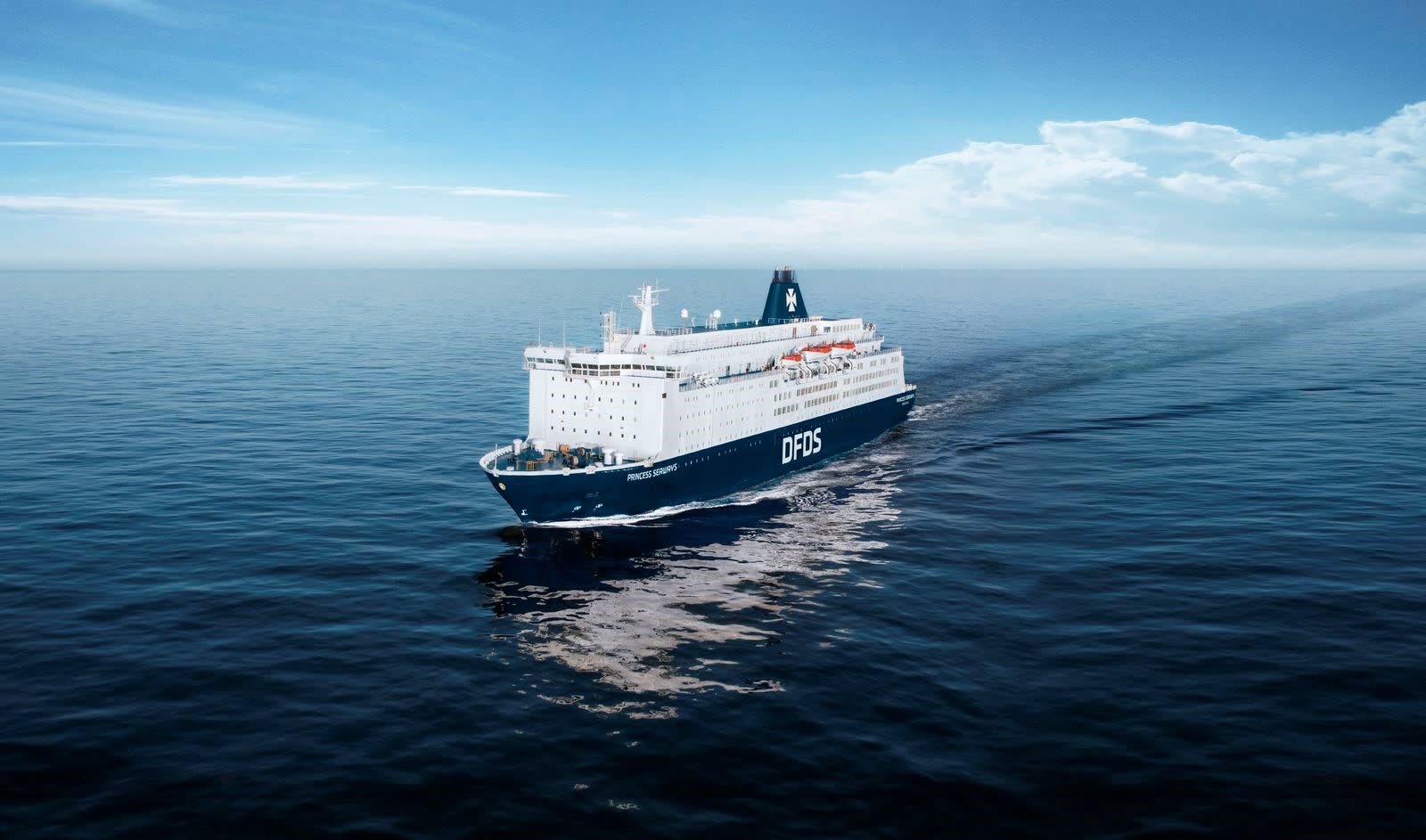
Brexit FAQs
Brexit
The UK’s transition period for exiting the EU ends on the 31 December 2020. There will be new travel requirements in place for UK citizens visiting Europe and for EU nationals visiting the UK.
We recommend following the official UK government guidance before travelling abroad. This can be found here: https://www.gov.uk/visit-europe-1-january-2021
At DFDS, it’s business as usual. You can rest assured that your ferry crossing will go smoothly and that you can book your upcoming trips with confidence.
Will Brexit affect my booking?
No. Brexit will not affect your booking and you can still travel with confidence with DFDS.
You may need to check the following:
- Your passport must be valid for at least 3 months after the day you depart the EU
- You have travel insurance which covers your healthcare
- You have the right driving documents and insurance for your vehicle
- Pet travel is organised if you are looking to take your pet to Europe with you as you need to contact your vet at least 1 month before you go
More details about this can be found in the sections below and on the official government website here: https://www.gov.uk/visit-europe-1-january-2021
Will my current passport be valid for travel to Europe after Brexit?
Existing red European passports issued to British citizens will continue to be valid for up to ten years (for an adult) from its original issue, or five years for a child.
British traveller’s passports must meet 2 requirements:
- Less than 10 years old on the day you enter the EU. Please check the date of issue on the passport.
- Valid for at least 3 months after the day you depart the EU. Bearing in mind the above the passport should not be more than 9 years 9 months by the time you depart EU.
This may differ for travel to and from countries that are in the EU but not in the Schengen area. For more information, click here.
If you are unsure whether or not your passport is valid, you can use a tool from the UK Government to check its validity: https://www.gov.uk/check-a-passport-for-travel-to-europe
Travel to the Republic of Ireland from the UK is subject to separate Common Travel Area arrangements, which only requires photo ID as a valid travel document to travel between the countries..
Can EU citizens still travel to the UK with an ID Card?
Since 1 October 2021 you cannot use an EU, EEA or Swiss national ID card to enter the UK unless you:
- have settled or pre-settled status under the EU Settlement Scheme, or Jersey, Guernsey or the Isle of Man’s settlement schemes
- have an EU Settlement Scheme family permit, or the equivalent from Jersey, Guernsey or the Isle of Man
- have a frontier worker permit
- are an S2 Healthcare Visitor
- are a Swiss national and have a Service Provider from Switzerland visa
In these cases, you can continue to use your national ID card to enter the UK until at least 31 December 2025.
Travelling with a full passport is, of course, always a safe option. You should check that your passport meets the new validity rules now using the government passport checker: gov.uk/passport-europe-2021
How can I renew my passport?
If your UK passports is 10 years old or over, or if it has less than three months validity for travel, you will need to renew it before you travel. The easiest and quickest way to renew your passport is to use one of the online services: https://www.gov.uk/apply-renew-passport
You should allow up to 10 weeks for your new passport when applying from the UK. Updated processing times for overseas applications will vary.
Will I need a Visa to travel to the EU after Brexit?
No. British Citizens will not need visas for short term stays of up to 90 days, in a 180 day period. The same applies vice versa: holders of Irish and EU member state passports will not need a visa to travel to the UK. You may need a visa or permit to stay for longer, to work or study, or for business travel. Check the travel advice for each country you’re visiting for more information.
Will the European Health Insurance Card (EHIC) still be valid?
The trade deal between the UK and the EU which was announced on 24 December confirmed that the UK EHIC card will continue to be valid for emergency medical care in an EU country until its expiry date. After that the UK government says a new Global card will be issued. You can apply for a Global Health Insurance Card (GHIC), free of charge, online at nhs.uk/ghic.
If you are travelling to Liechtenstein, Iceland, Norway or Switzerland, your card may not be valid. You should get appropriate travel insurance which covers your health needs. A UK passport can be used to get medically necessary healthcare in Norway. Read more travel advice information.
We would always advise individuals travelling abroad to ensure they have adequate private travel insurance, as even the EHIC scheme did not cover all medical treatment and associated costs.
Here is a link to the UK Government’s advice on foreign travel insurance: https://www.gov.uk/guidance/foreign-travel-insurance
Will I need an ETIAS (European Travel Information and Authorisation System) visa?
No. British Citizens will not need visas for short term stays of up to 90 days, in a 180 day period.
What is the Schengen area?
The Schengen area is a collection of 26 European states that have abolished all passport and border controls, allowing free movement between them for EU citizens.
Travel by British passport holders to all of countries in the Schengen area will be affected once we have left the EU.
Will I need to apply for an International Driving Permit to drive in Europe?
You do not need an international driving permit (IDP) to visit and drive in the EU, Switzerland, Iceland or Liechtenstein. You might need an IDP to drive in some EU countries and Norway if you have:
- A paper driving license
- A license that was issued in Gibraltar, Guernsey, Jersey or the Isle of Man
Check the requirements with the embassy of the country you will be driving in.
You will not need an IDP to drive when visiting Ireland if you have a UK driving license.
You can get an IDP over the counter at the Post Office. An IDP costs £5.50 and drivers must:
- Be a resident of Great Britain or Northern Ireland
- Have a full UK driving license
- Be 18 or over
UK stickers and number plates
From 28 September 2021, you need a UK sticker instead of a GB sticker.
If your number plate includes the UK identifier with the Union flag (also known as the Union Jack), you do not need a UK sticker.
However, you will need to display a UK sticker clearly on the rear of your vehicle if your number plate has any of the following:
- a GB identifier with the Union flag
- a Euro symbol
- a national flag of England, Scotland or Wales
- numbers and letters only – no flag or identifier
Full information on driving in Europe is available at gov.uk/driving-eu-2021.
What about my European driving insurance?
All UK vehicle insurance provides the minimum third party cover to drive in the EU (including Ireland).
You do not need to carry a green card when you drive in the EU (including Ireland), Andorra, Bosnia and Herzegovina, Iceland, Liechtenstein, Norway, Serbia, or Switzerland. You still need valid vehicle insurance. We recommend contacting your motor insurance provider at least one month in advance of travel to check this covers European travel. More information about driving insurance abroad can be found here.
If I am towing a trailer or caravan, will I need a separate green card for the trailer?
Yes, some EEA and EU countries require a separate Green Card as proof of insurance for your trailer, including caravans. If you are travelling with a trailer, contact your insurance provider to get two Green Cards: one for the towing vehicle, and one for the trailer. We recommend requesting these from your insurance provider 6 weeks one month before travel.
You must carry a physical copy of your green card when driving abroad. Electronic versions of green cards are not acceptable.
You need to register some commercial and non-commercial trailers before towing them to or through most EU and EEA countries. Find out more about trailer registration here.
Can I still take my pet on holiday with me?
Yes, and ferries are a particularly pet-friendly means of transport often offering dedicated facilities for pet owners. However, you will need to contact your vet one month before your travel date to ensure that your pet has had the correct vaccinations and you have the right documentation.
On 1 January 2021, the UK became a Part 2 listed third country in the EU Pet Travel Scheme.
This means the EU Pet Passport will no longer be valid for pets travelling from the UK to the EU and when taking your pets to the EU or Northern Ireland:
- your pet must be microchipped
- your pet must have had up-to-date rabies vaccinations at least 21 days before travel
- dogs have had tapeworm treatment if you’re travelling directly to Finland, Ireland, Northern Ireland, Norway or Malta
- you must obtain an animal health certificate (AHC) from an official vet 10 days before travel. This is valid for 4 months for a single trip to the EU / Northern Ireland
- you must enter the EU / Northern Ireland through a designated Traveller’s Point of Entry (TPE), where your pet will be checked.
For pets travelling from the EU into the UK, the EU Pet Passport will still be accepted.
Detailed guidance from the Government on pet travel after the transition period ends can be found here.
Click here for further information on the current PET Travel Scheme: http://apha.defra.gov.uk/External_OV_Instructions/Export_Instructions/Certification_Procedures/Small_Animal_Exports/index.htm
Click here for our advice on travelling safely with your dog: https://www.discoverferries.com/travel-information/taking-dog-ferry/
Will there be long queues at ports for tourist traffic?
We are confident that passengers travelling to Europe from the UK for leisure purposes will not experience many changes to the way they currently travel through the ferry ports, as long as you have the correct documentation (valid passport, insurance, driving permit etc.)
What about customs entering Europe from the UK?
At EU border control British citizens may have to:
- show a return or onward ticket
- show you have enough money for your stay
- use separate lanes from EU, EEA and Swiss citizens when queueing
You’ll need to declare cash of £10,000 or more (or the equivalent in another currency) if you take it between the UK and any other country. To check the guidance or obtain an online form, visit gov.uk/guidance/taking-cash-in-and-out-of-great-britain.
If you are leaving or entering the UK temporarily, including on a business trip, you do not need to declare your laptop or mobile phone to customs.
Can I bring food & drink into the EU?
There may also be restrictions on the ability to transport some food items into Europe from the UK.
From 23:00 on 31 December 2020, you can no longer take products of animal origin into the EU in your luggage, vehicle, or person. This includes any products containing meat or dairy, or plants and plant products. There are certain exemptions to this rule for quantities of powdered infant milk, infant food, confectionary, specialised foods and pet feed. If your item is not exempt, please consume or dispose of these items before reaching the EU border, otherwise you may be fined or prosecuted by the EU.
Check the new rules on the European Commission website.
A phytosanitary certificate is required to take certain plants and plant products (including most fruits and vegetables) into EU countries. Check the rules for travelling from a non-EU country into the EU on the European Commission website.
EU rules governing data and roaming charges no longer applies. Some mobile phone providers have said they will continue free data roaming benefits for their customers, so please check with your provider before travelling to the EU.
Note that a new law means that you will now be protected from incurring mobile data charges above £45 without you knowing.
From January 2021 if you are travelling from the UK to the EU and vice versa you will be able to take advantage of duty-free and tax-free shopping on board your ferry.
When travelling to GB your personal allowances are as below. If you exceed these allowances, you must pay tax and/or duty on all of the goods in that category, not just the value or quantity above the allowance:
Alcohol
- 42 litres of beer
- 18 litres of still wine
- 4 litres of spirits OR 9 litres of sparkling wine, fortified wine or any alcoholic beverage less than 22% ABV
Tobacco
- 200 cigarettes OR
- 100 cigarillos OR
- 50 cigars OR
- 250g tobacco OR
- 200 sticks of tobacco for heating
- or any proportional combination of the above and £390 worth of other goods.
Our Ferry Routes

Proudly named the World’s Leading Ferry Operator
We did it! After being crowned ‘Europe’s Leading Ferry Operator 2024’ at the World Travel Awards earlier this year, we are delighted to announce we have retained our title as the World’s Leading Ferry Operator.
We were also once again recognised as having the best website in our industry – scooping both the European and World awards in 2024.
A heartfelt thank you to everyone who voted, and to our passengers, colleagues and partners who contribute to our continued success – we couldn’t do it without you all.




